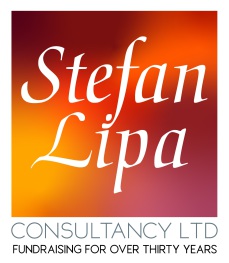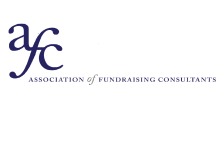Time spent on a resources study is time well spent!
Despite the best will in the world, fundraising projects that don’t have an agreed strategy can end up being haphazard, disorganised, stressful and disheartening when fundraising targets are not achieved. Fundraising projects are similar to running a small business. To be successful, they need to understand the environment around them; map out the future; develop and communicate a clear course of action; make informed decisions about how objectives can be achieved; and build and grow a team to deliver results.
If you are about to embark on a capital campaign, a good foundation is to commission a resources study. This is a form of pre-project consultation which will help map out any issues that could affect or influence your proposed fundraising campaign. A fundraising consultant would typically start a resources study by speaking to a range of representatives from the charity’s stakeholders. For example, this may include local residents, key people in the community, and local and/or central government bodies.
It is crucial that the resources study does not shy away from stakeholders that may present some opposition to the potential fundraising project. The opinions of all stakeholders count. Many charities find it beneficial to employ a fundraising consultant to ensure impartiality during this consultation – especially with the ‘stickier’ stakeholders! Stakeholder interviews are completed on a confidential basis. Stakeholders will not be asked for a donation during the interviews and their participation in the resources study will not necessarily mean they are involved in the fundraising project itself.
Stakeholders will be asked a wide range of questions including:
- What do they think of the fundraising project/idea?
- Where do they think the funds will come from (source of funding as well as geographic location)?
- Where will the campaign ambassadors come from? Who might they be?
- Do they think the fundraising campaign is achievable (and in light of any other active/competing fundraising initiatives)?
Over the years, we have conducted many resources studies for our clients and they’ve been hugely beneficial in helping identify issues that could influence a fundraising campaign. Regardless of the size of your charity, how ambitious your fundraising targets are or how far progressed you are with your fundraising ideas, it is never too late to develop a fundraising plan.
We were called in to assist one of our clients, whose fundraising campaign for a building project had stalled. St Mary’s Church in Kings Worthy, Hampshire, had grand plans for new facilities to help expand its congregation, and to include more young people from the parish. However, these plans met strong local opposition. Our first task was to ensure that the project was well-defined and that all church supporters, and as many local residents as possible were in agreement with these aims. A good solid base of local support was created, which made the task of advising the campaign leadership a great pleasure for us. The original target was £265,000, but this was exceeded as the campaign raised more than £450,000 enabling superb new church rooms to be built (click here to read more about this case study).
Another example of where a resources study proved hugely beneficial was for the Rose Road Association, which provides education, therapy and respite for young people with severe disabilities and their families. We were appointed when the charity’s campaign to raise funds for a new centre in Southampton had slowed down to the point where momentum had been lost and the target was beginning to look unachievable. We undertook a study to understand why the charity had encountered the challenges which then informed the way forward for the campaign. With gentle advice and assistance, the campaign was back on the path to success. A magnificent £5 million was raised, enabling the building of the new state-of-the-art Bradbury Centre (click here to read more about this case study).
Both these examples demonstrate that by spending a bit of time planning – and understanding, you can have a clear strategy and tactics that will help focus your efforts and keep you and your campaign ambassadors on track to realising your goals – making what may feel unachievable, achievable.
For whatever reason, there are clients who are of the opinion that resources studies are unnecessary before commencing a fundraising campaign and proceed accordingly. The reasons why clients proceed in this way include:
- The project has already commenced and the client wants to get on with it
- The client needs funds urgently and wants to benefit immediately from funds which appear to be ‘low hanging fruit’
- The client does not want to pay for a resources study or may think it more affordable to build a picture of possibilities as the fundraising campaign develops
- The client may argue that fundraising campaigns can achieve results without the need for a resources study – figuring out and navigating around the roadblocks as they go along.
However, in my experience, if no resources study is undertaken, the questions which would have been answered by stakeholders during the interviews still need to be answered during the course of the fundraising campaign. This can take additional time and cost, and can cause frustrations.
07.11.2016
For more information, call us on 01264 860003 or send an email.



